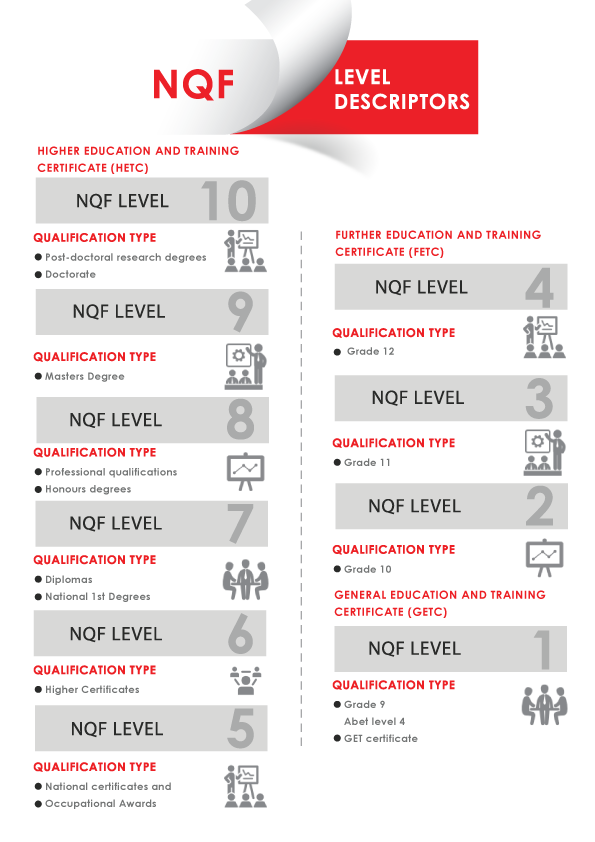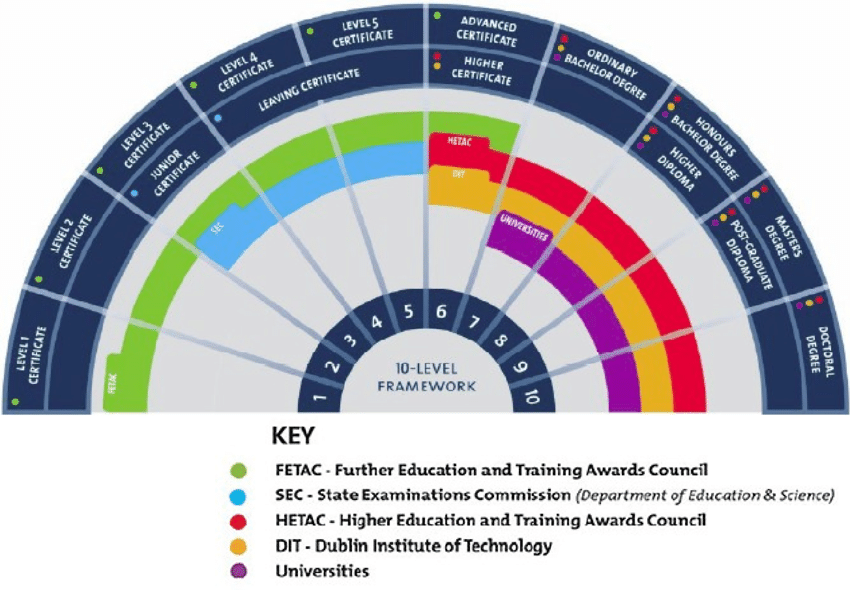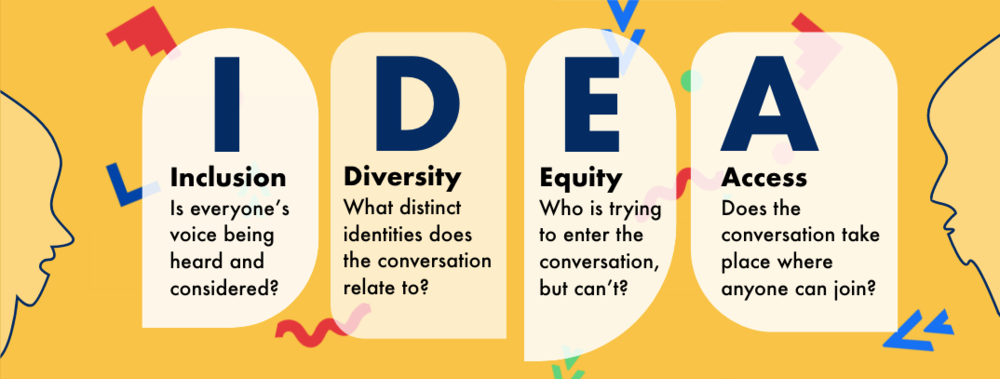Role of the NQF, The Bill Of Rights, the National Skills Act and the Employment Equity Act in South African Learning And Education
The Bill of Rights, contained in the Constitution, 1996, stipulate that everyone has the right to a basic education, including adult basic education and further education, which the State, through reasonable measures, must progressively make available and accessible.
Formal Education Structures
Formal education in South Africa is categorised according to three levels – General Education and Training (GET), Further Education and Training (FET) and Higher Education (HE).
The GET band consists of the Reception Year (Grade R) and learners up to Grade 9, as well as an equivalent Adult Basic Education and Training (Abet) qualification. The FET band consists of grades 10 to 12 in schools and all education and training from the National Qualifications Framework (NQF) levels 2 to 4 (equivalent to grades 10 to 12 in schools), and the N1 to N6 in FET colleges. The HE band consists of a range of degrees, diplomas and certificates up to and including postdoctoral degrees. These levels are integrated within the NQF provided by the South African Qualifications Authority (SAQA) Act, 1998 (Act 58 of 1998).
By mid-2007, the South African public-education system had 12,3 million learners, 387 000 facilitators, 26 592 schools, 2 278 Abet centers, 50 public FET institutions, 4 800 Early Childhood Development (ECD) centers and 23 HE institutions. Of the 26 592 schools, 1 000 were independent schools, 400 were special-needs schools and the remainder were ordinary schools. Of all schools, 6 000 were secondary and the rest primary.
Click here to view an explanation about formal education structures.
SAQA and the NQF
The SAQA, through the NQF, ensures that South African qualifications are of excellent quality, and internationally comparable.
Click here to view a video that explains the South African NQF.
The Authority oversees the:
- development of the NQF by formulating and publishing policies and criteria for the registration of bodies responsible for establishing education and training standards or qualifications,
- accreditation of bodies responsible for monitoring and auditing achievements in terms of such standards and qualifications,
- implementation of the NQF by ensuring the registration, accreditation and assignment of functions to the referred bodies, and the
- registration of national standards and qualifications on the NQF.
The NQF is a set of principles and guidelines on which records of learner achievement are registered. This enable national recognition of acquired skills and knowledge, thereby ensuring an integrated system that encourages lifelong learning. The NQF also attempt to move the measurement of achievement in education and training away from inputs towards outcomes.

Click here to view a video that explains the SA NQF and SAQA.

Education of Learners with Special Education Needs
The national and provincial departments of education provide a wide range of education services to learners who, owing to a range of factors, experience barriers to learning and participation.
These include:


These services are provided in ordinary and special schools through a range of service-providers such as district curriculum, institutional- and special-needs specialists, as well as specially trained facilitators.
The Education White Paper 6 acknowledges that many children experience barriers to learning. Some of these barriers lie within the learners themselves (intrinsic), while some barriers are systemic, socio-economic and cultural (extrinsic).
Facilitators will be trained and empowered to teach children with diverse learning needs. District-based support teams will be developed to provide support, mainly to facilitators, in full-service schools.
This will enable children, the majority of whom could not access education in the past because of the unavailability of specialised services and support in rural and previously disadvantaged areas, to gain access to education.
Once the first phase of implementing inclusive education is completed, the lessons learnt will be applied incrementally to the wider education sector.
Meanwhile, existing special schools will be strengthened so that some of them can serve as resource centres for full-service schools and ordinary schools in their areas.
Lecturer Broadcast: Click here to view an explanation about education of learners with special education needs.
Click here to view a video that explains the teaching technique for students with learning disabilities.
Role of Sector and Workplace Skills Plans as Well as "Scarce and Critical Skills" in the Learning and Facilitation Process
The skills training of different industry sectors is coordinated and controlled by various SETAs (Sector Education and Training Authorities). These SETAs will meet with different stakeholders and key-employers from their specific business sector and will draft a detailed Sectoral Skills Plan, to ensure that learners are guided towards training in areas where skills shortages are experienced. This will help to balance the need for specific skills with the high rate of unemployment currently experienced in South Africa.
A workplace skills plan has much the same purpose but is implemented on a more localised scale for different organisations.